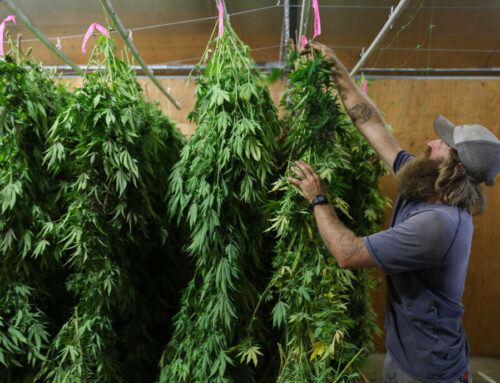Opioid Deaths Decline When Cannabis Dispensaries Nearby
UNIVERSITY OF CALIFORNIA, DAVIS – Deaths from overdoses of opioids — a class of drugs that include heroin, prescription pain relievers such as oxycodone, and synthetic opioids such as fentanyl, have risen sharply in the US in recent years.
However, good news has emerged from research showing the more legal cannabis dispensaries a region has, the fewer opioid deaths they suffered, according to a detailed new study published in a leading medical journal. Most sharply reduced were the deaths from fentanyl overdoses.
The study by Greta Hsu, at the University of California, Davis, and Balázs Kovács, at Yale University, was published this week in The BMJ, a respected medical journal previous known as the British Medical Journal.
It follows a Canadian study published this week in the Canadian journal of Pain Medicine, which found legalizing cannabis led to a “marked decline” in the volume of opioids prescribed across Canada.
The BMJ results, based on U.S. data, suggest cannabis use as an alternative to opioids in pain management could improve health prospects.
In areas with one legal storefront cannabis dispensary, opioid death rates were an estimated 17 per cent lower than average. In areas with two dispensaries, there was an estimated 21 per cent reduction in mortality rates, the study found.
What the study doesn’t do, however, is specifically declare a direct cause of lower opioid death rates.
“Our findings suggest that higher storefront cannabis dispensary counts are associated with reduced opioid-related mortality rates at the county level,” the authors write. “While the associations documented cannot be assumed to be causal, they suggest a potential association between increased prevalence of medical and recreational cannabis dispensaries and reduced opioid-related mortality rates.”
The BMJ study focusses on the extreme outcomes of opioid use.
“This association holds for both medical and recreational dispensaries, and appears particularly strong for deaths associated with synthetic (non-methadone) opioids, which include the highly potent synthetic opioid fentanyl and its analogs,” the study says.
“This study highlights the importance of considering the complex supply side of related drug markets and how this shapes opioid use and misuse.”
The researchers said highly addictive opioids represent more than two thirds of all U.S. drug overdose deaths in 2018.
Researchers have looked at what impact cannabis dispensaries have on the use, abuse and impact of other drugs in the past, and have returned with mixed results.
In response, the two U.S. researchers drilled down to a more local level to compare data in U.S. counties that actually have dispensaries, rather than look at statewide or nation-wide data.
Their study also took into account how many dispensaries were operating in each county, probing how the count of cannabis dispensaries relates to opioid deaths.
Their data set spanned from 2014 to 2018, the first year that structured data on dispensaries was available, and ending with the most recent period for detailed health statistics.




































